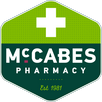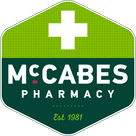An ultimate guide to collagen skincare
Collagen is a popular ingredient in many modern skincare products, used by innovative cosmetic companies looking for effective ways to tackle common skin concerns and improve skin health. When applied topically, collagen can help to slow down the signs of ageing and help skin look smooth and supple.
In this article, we'll explain what collagen is, what it can do for the skin, and how it can be incorporated into your skincare routine.
Click on one of the links below to jump to that section:
What is collagen and what does it do for the skin?
Collagen is a structural protein that is naturally made in our bodies, mainly formed by amino acids. It acts like a glue that holds connective tissue together and is found in the skin, bones, ligaments, tendons, muscles and blood vessels. Around a third of the protein that makes up the body is collagen. Collagen contributes to skin elasticity and firmness.
As we age, the rate of natural collagen production in the body slows down. Signs of collagen loss are obvious in the skin. It loses volume, begins to sag, and develops fine lines and wrinkles. Topical collagen skincare products do not replace lost collagen.
However, hydrolysed collagen, which is enzymatically broken down, has a low molecular weight and is capable of penetrating the dermis layer to reach areas of skin cells where collagen has been lost. The whole collagen molecule is too big to do this when applied topically.
There is not enough evidence yet to prove that topical hydrolysed collagen products can actually support the production of new collagen, but these products do seem to boost hydration and make the skin feel softer and smoother. Fine lines and wrinkles can appear reduced when moisture levels are improved. Collagen skincare products can therefore be particularly helpful for those with mature or dry skin.
How to use collagen skincare products
Most collagen skincare products can be used every day, both morning and night. There is no right or wrong age to start using topical collagen products, but they may be most useful to those with mature skin wanting to reduce the appearance of fine lines and wrinkles.
Since collagen products tend to be highly moisturising, they may feel quite heavy if you have oily skin. However, lightweight collagen products like serums have a delicate enough texture so they won’t leave the skin feeling greasy.
To maximise the effects of topical collagen you could combine it with other active ingredients that are known to support collagen synthesis or help combat the signs of ageing. Retinol, a Vitamin A derivative, improves cell turnover to increase collagen production and help the skin look smoother and firmer. Vitamin C is a powerful antioxidant that can provide support in slowing down the rate at which collagen levels deplete.
Peptides are small strings of proteins that make up collagen, so skincare products that contain peptides can also be beneficial. It's important to also always wear a high-quality UVA protection sunscreen to protect existing collagen levels because UV rays destroy collagen.
When layering collagen skincare with other products, make sure to apply lightweight products like serums and gels first, and heavier such as creams and sunscreen last. A typical morning routine might include:
-
Cleanser
-
Toner
-
Serum (with collagen for oily skin types)
-
Moisturiser (with collagen for dry or mature skin types)
-
SPF product
-
Makeup
Collagen serums

The Inkey List Collagen Serum features peptide Matrixyl 3000™ which mimics the plumping, smoothing effect of natural collagen. It also benefits from SYN TACKS™, a dual peptide with collagen-boosting effects. This serum can reduce fine lines and wrinkles and help the skin to look and feel firmer. A small amount should be used on the neck and face in the morning and evening after cleansing and before moisturising.
Collagen body care

The Solution Collagen Perfecting Body Lotion is a firming body lotion with procollagen to plump the skin, sodium lactate to hydrate, and caffeine to invigorate. It is suitable for all skin types but may be particularly helpful for those prone to dryness. It has a lightweight, non-greasy texture that absorbs quickly into the skin.
Collagen-boosting products

Filorga Time-Filler Absolute Wrinkle Correction Cream is a highly concentrated cream that can be used morning and night to improve skin smoothness. A tripeptide works to relax the facial muscles to reduce the severity of lines, hyaluronic acid plumps the skin, peeling agents smooth surface cracks in the skin, and plant extracts reduce dryness.

MooGoo Night Restoration Cream is a rich and luxurious night cream that contains lactic acid to remove dead skin cells, eradicate rough patches of flaky skin, and stimulate collagen production. Hyaluronic acid delivers intense moisturisation and green tea extract provides antioxidant effects.

Aliso Beauty Cryo Globes should be chilled in the fridge before being gently rolled over the skin. They help to reduce puffiness and release muscle tension, and they can provide a skin tightening effect. By stimulating blood circulation, they can boost cell rejuvenation and stimulate collagen production.
Frequently asked questions
What are the risks or side effects of collagen and how can these be avoided?
There are no serious risks associated with collagen skincare, but as with all ingredients in cosmetic products, there's always a risk of irritation or allergic reaction. To reduce this risk, it's important to patch test a product before applying it to large areas of the face or body.
How can you protect your skin’s collagen levels?
Collagen depletes more quickly as a result of repeated exposure to UV rays, so use a good quality SPF product every day, even if it isn't very sunny outside.
You could also increase your consumption of foods that contain antioxidants such as Beta carotene and Vitamin C since these help to stimulate collagen synthesis within the body.
What causes collagen levels to decrease?
As we get older our bodies naturally produce less collagen and our overall collagen level gradually depletes. As well as sun exposure, smoking and high alcohol and sugar consumption can all increase the rate of collagen depletion.
What are the signs of a lack of collagen?
Skin that is lacking in collagen will look thin, dull and wrinkled. There will be a noticeable lack of firmness and elasticity, and it may have a sagging appearance.

